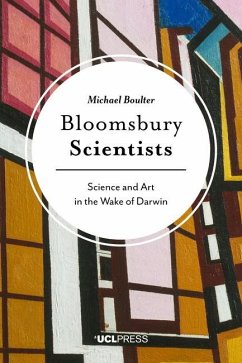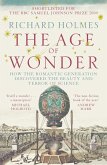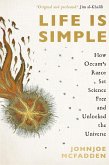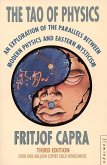Bloomsbury Scientists is the story of the network of scientists and artists living in a square mile of London before and after the First World War. This inspired group of men and women viewed creativity and freedom as the driving force behind nature, and each strove to understand this in their own inventive way. Their collective energy changed the social mood of the era and brought a new synthesis of knowledge to ideas in science and art. Class barriers were threatened as power shifted from the landed oligarchy to those with talent and the will to make a difference.
A time of unexpected opportunities, from the new disciplines of Genetics and Ecology to Post-Impressionism and beyond, Michael Boulter seamlessly weaves together the stories originating from Bloomsbury's laboratories, libraries and studios. He narrates the breakthroughs of scientists such as Ray Lankester and Marie Stopes alongside the creative outputs of H. G. Wells and Virginia Woolf, among many others, and intricately connects them all through personal friendships, grievances, quarrels and affections. Bloomsbury Scientists offers a fresh and crucial perspective on this history at a time when the complex relationship between science and art continues to be debated.
Praise for Bloomsbury Scientists
'The tale usually told about early 20th century Bloomsbury is one of the artists and activists, the ones who conscientiously objected, lived in squares, and loved in triangles. Michael Boulter adds some obscurer names - leading lights from the life sciences - and from this he concocts a confusing, ugly account of the battle between arts and sciences ... this little volume is absorbing. '
Daily Telegraph
'Bloomsbury was famously the stomping ground of Virginia Woolf and her early-twentieth-century coterie. But that square mile centred on University College London was also a locus for science. Palaeobiologist Michael Boulter paints a group picture of biologists energized by Darwinism, including Ray Lankester and Marie Stopes, rubbing shoulders with cross-disciplinary intellects such as Roger Fry and H. G. Wells. Although marred by the intrusion of eugenics, this heady era saw the rise of fields from ecology to genetics.'
Nature, Springer
'Serves as a useful refresher on the background, beliefs and work of the key personalities. The descriptions of Bloomsbury are, while not flashy, evocative. It will therefore be a starting point for those interested in the draw and character of Bloomsbury.'
Annals of Science
'This deeply personal account is a moving eulogy to intellectual inquiry, education and learning. With wounding cuts, rising fees and falling student numbers, and such extensive and so widely publicized criticism of the higher-education sector, it reminds us that the rights to secular and scientific education were passionately fought for, and acquired, just over one hundred years ago. As practitioners, the short duration of our scientific and intellectual lineage is rendered visible. I enjoyed this work. It will inform disciplinary histories of the social, life and hard sciences and deserves to be read by scientists and historians at all levels and the curious from all walks of life.'
The British Journal for the History of Science
'I recommend Bloomsbury Sciences: Science and Art in the Wake of Darwin to audiences, in whatever disciplines, who are interested in good storytelling regarding either scientists as lively characters or modern science as an endeavor closely tied to the society. Readers wondering about the split between science and the humanities will be fascinated by the fact that modern science in its early stages worked hand in hand with fine art and literature. Furthermore, I recommend the book to practitioners of the formal and informal education of science history. The book's non-heroic, decentralized narratives are useful for teaching and explaining history accurately.'
H-Sci-Med-Tech, H-Net Reviews
'The aims of this study are admirable. As Boulter insists, scientists and humanists have been drawn together by common conceptions of the human for a very long time: collectively, their energy changed the social mood of the late nineteenth century and ushered forth a new synthesis of knowledge in the twentieth. In Bloomsbury Scientists, he highlights the likeness between the two camps but offers a new slant. Indeed, as the sweeping history of the text shows, we, like E. Ray Lankester himself, are always ready for a new turn, but can't help but be comforted by that which came before.'Journal of British Studies
'Michael Boulter's book will certainly appeal, and it is readable and concise.'Isis: A Journal of the History of Science Society
'Bloomsbury Scientists gives the general reader a quick snapshot of the landscape that was painted with scientific brushes and evolutionary paint. The story is told with great passion and consideration for the names that contributed to this entangled history of science and arts in Bloomsbury London.'
History: The Journal of the Historical Association
A time of unexpected opportunities, from the new disciplines of Genetics and Ecology to Post-Impressionism and beyond, Michael Boulter seamlessly weaves together the stories originating from Bloomsbury's laboratories, libraries and studios. He narrates the breakthroughs of scientists such as Ray Lankester and Marie Stopes alongside the creative outputs of H. G. Wells and Virginia Woolf, among many others, and intricately connects them all through personal friendships, grievances, quarrels and affections. Bloomsbury Scientists offers a fresh and crucial perspective on this history at a time when the complex relationship between science and art continues to be debated.
Praise for Bloomsbury Scientists
'The tale usually told about early 20th century Bloomsbury is one of the artists and activists, the ones who conscientiously objected, lived in squares, and loved in triangles. Michael Boulter adds some obscurer names - leading lights from the life sciences - and from this he concocts a confusing, ugly account of the battle between arts and sciences ... this little volume is absorbing. '
Daily Telegraph
'Bloomsbury was famously the stomping ground of Virginia Woolf and her early-twentieth-century coterie. But that square mile centred on University College London was also a locus for science. Palaeobiologist Michael Boulter paints a group picture of biologists energized by Darwinism, including Ray Lankester and Marie Stopes, rubbing shoulders with cross-disciplinary intellects such as Roger Fry and H. G. Wells. Although marred by the intrusion of eugenics, this heady era saw the rise of fields from ecology to genetics.'
Nature, Springer
'Serves as a useful refresher on the background, beliefs and work of the key personalities. The descriptions of Bloomsbury are, while not flashy, evocative. It will therefore be a starting point for those interested in the draw and character of Bloomsbury.'
Annals of Science
'This deeply personal account is a moving eulogy to intellectual inquiry, education and learning. With wounding cuts, rising fees and falling student numbers, and such extensive and so widely publicized criticism of the higher-education sector, it reminds us that the rights to secular and scientific education were passionately fought for, and acquired, just over one hundred years ago. As practitioners, the short duration of our scientific and intellectual lineage is rendered visible. I enjoyed this work. It will inform disciplinary histories of the social, life and hard sciences and deserves to be read by scientists and historians at all levels and the curious from all walks of life.'
The British Journal for the History of Science
'I recommend Bloomsbury Sciences: Science and Art in the Wake of Darwin to audiences, in whatever disciplines, who are interested in good storytelling regarding either scientists as lively characters or modern science as an endeavor closely tied to the society. Readers wondering about the split between science and the humanities will be fascinated by the fact that modern science in its early stages worked hand in hand with fine art and literature. Furthermore, I recommend the book to practitioners of the formal and informal education of science history. The book's non-heroic, decentralized narratives are useful for teaching and explaining history accurately.'
H-Sci-Med-Tech, H-Net Reviews
'The aims of this study are admirable. As Boulter insists, scientists and humanists have been drawn together by common conceptions of the human for a very long time: collectively, their energy changed the social mood of the late nineteenth century and ushered forth a new synthesis of knowledge in the twentieth. In Bloomsbury Scientists, he highlights the likeness between the two camps but offers a new slant. Indeed, as the sweeping history of the text shows, we, like E. Ray Lankester himself, are always ready for a new turn, but can't help but be comforted by that which came before.'Journal of British Studies
'Michael Boulter's book will certainly appeal, and it is readable and concise.'Isis: A Journal of the History of Science Society
'Bloomsbury Scientists gives the general reader a quick snapshot of the landscape that was painted with scientific brushes and evolutionary paint. The story is told with great passion and consideration for the names that contributed to this entangled history of science and arts in Bloomsbury London.'
History: The Journal of the Historical Association
Dieser Download kann aus rechtlichen Gründen nur mit Rechnungsadresse in A, D ausgeliefert werden.









